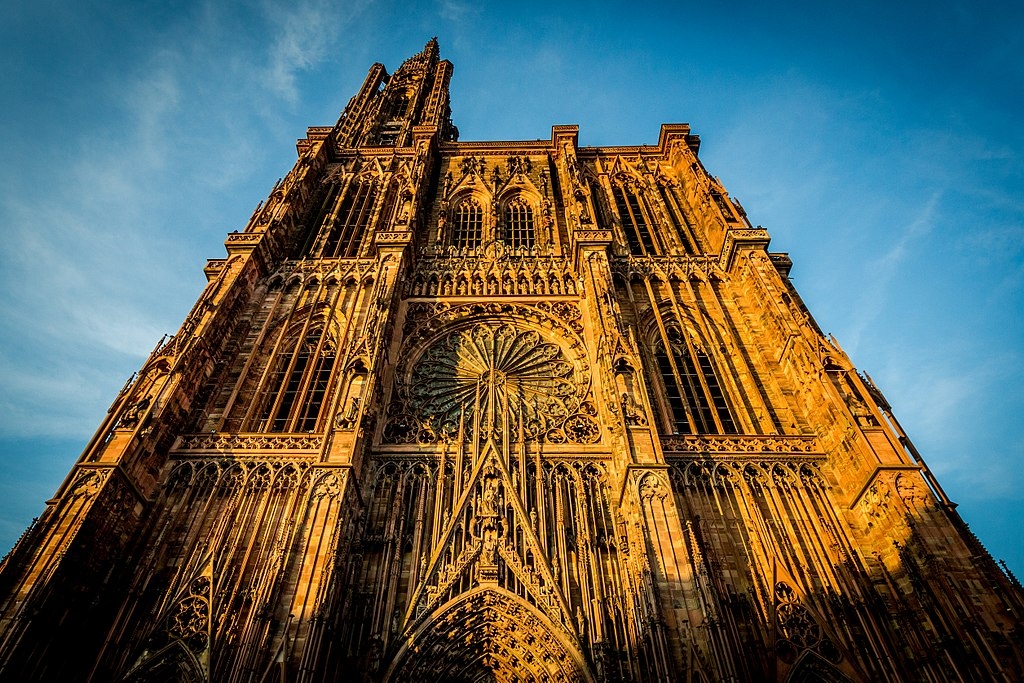|
In this mailing:
- Giulio Meotti: Strasbourg:
Capital of the EU and "The Future of Europe"
- Jagdish N. Singh: New Delhi Must
Uphold "Zero Tolerance" for Terrorism
by Giulio Meotti • January 17,
2019 at 6:00 am
- A quarter of the
Strasbourg's public school students choose the halal
menu in school cafeterias.
- In October, from
Strasbourg, the European Court of Human Rights upheld the
shameful conviction of an Austrian woman for what the court
called an "abusive attack on the Prophet of Islam"
-- just like that, in a stroke, accepting and legitimizing
Islam's blasphemy laws. It was, as one news analyst, born in
Iran, took note, "the day free speech died in
Europe."
- "Strasbourg,"
according to the city's official website, "embodies the
fundamental values of Europe". But if the current trend
continues, these values will be the opposite of those, such as
freedom of expression, on which Europe was founded.

According
to the official website of Strasbourg, France, the city
"embodies the fundamental values of Europe". But if the
current trend continues, these values will be the opposite of
those, such as freedom of expression, on which Europe was founded.
Pictured: The Cathedral of Our Lady of Strasbourg, one of Europe's
most famous Christian sites. (Image source: Claude Truong-Ngoc /
Wikimedia Commons)
"New York, Geneva and Strasbourg are the only
cities in the world which are home to international institutions
without being national capitals", an official page of the
French city proudly proclaims. "The choice of Strasbourg as
the European capital following the Second World War is no accident.
The city stands as a shining symbol of reconciliation between
peoples and of the future of Europe".
Last December, however, Strasbourg was shocked by a
new terrorist attack. Cherif Chekatt, shouting "Allahu
Akbar", murdered five people, before being neutralized in a
two-day manhunt. Among Chekatt's victims were Italian, Polish and
French citizens. Unfortunately, Strasbourg has become one of
Europe's hotbeds of jihadism, an ideology seemingly aimed at
destroying Europe's people, not conciliating with them.
by Jagdish N. Singh • January 17,
2019 at 4:00 am
- Engaging in
"dialogue" with the separatists and the Taliban
makes little sense. Neither group has demonstrated any faith
in the values of modern civilization and democracy. Contrary
to claims on the part of Jammu and Kashmir separatists and
Pakistan -- that India never offered "unconditional
dialogue," and has been rejecting Islamabad's peace
overtures -- it is actually Pakistan's propaganda against
Indian society that is responsible for the violence in
Kashmir.
- In fact, according
to a 2017 Indian Intelligence Bureau report, Pakistan's
Inter-Services Intelligence paid separatist leaders Rs
80,000,000 (approximately $1.2 million) to fuel unrest in
Kashmir. These leaders include Syed Ali Shah Geelani and Asiya
Andrabi, both of whom are reported to have links to Hizbul
Mujahideen, a J&K separatist group that in August 2017 was
designated by the U.S. State Department as a Foreign Terrorist
Organization.
- New Delhi's soft
approach to the J&K separatists can only serve to embolden
extremist forces. The Modi government also needs to refrain
from extending any goodwill gestures to the Taliban -- a
junior partner of Qaeda that aims to establish an Islamic
caliphate in the Indian subcontinent, including in Jammu and
Kashmir.
- The current
administration in Washington, like that in Jerusalem, grasps
that all of the above radical groups have "common
political targets -- the United States, India and
Israel." Rather than risk being seduced by the false
notion that it is possible to negotiate with terrorists, India
would do well to reach out to its main democratic allies: the
U.S. and Israel.

New
Delhi's soft approach to the Jammu and Kashmir separatists can only
serve to embolden extremist forces. The Modi government also needs
to refrain from extending any goodwill gestures to the Taliban -- a
junior partner of Qaeda that aims to establish an Islamic caliphate
in the Indian subcontinent. Pictured: Srinagar, the largest city of
Kashmir. (Image source: KennyOMG/Wikimedia Commons)
When the Narendra Modi-led government came to power
in India with the Bharatiya Janata Party (BJP) in May 2014, the
public hoped that a peaceful resolution would be reached over the
strife-torn northern state of Jammu and Kashmir (J&K).
A key element of the BJP's platform had been a
policy of "zero tolerance towards terrorism." Yet, since
Modi's election, the situation in J&K -- which has been the
focus of a long-standing conflict between India and Pakistan, with
minority Hindus fleeing Islamist violence in 1990 -- has worsened.
No Hindu has returned to the Kashmir Valley during Modi's
premiership, and the number of Indian civilians and security
personnel killed in attacks by Pakistani militants has increased. In
fact, during the four-year period between 2014 and 2018, 75 more
Indian soldiers and other security personnel were killed in J&K
than during the previous five years (219, compared to 144).
|































No comments:
Post a Comment